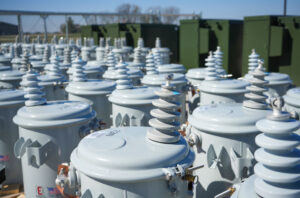Electric cooperatives across the nation recognize Electrical Safety Month every May, but they also practice safety year-round. From co-op employees to you, the consumer-members, everyone has a role to play in prioritizing safety.
According to the Electrical Safety Foundation International, thousands of people in the U.S. are critically injured or electrocuted because of electrical fires and accidents in their own homes. Many of these accidents are preventable.
Safety is more than a catchphrase. Electric co-ops strive to keep both employees and members safe. That’s why you may see your electric cooperative hosting safety demonstrations at community events and in schools throughout the year communicating the dangers of electricity. They discuss emergency scenarios, such as what to do in a car accident involving a utility pole and downed power lines.
Electricity is an integral part of modern life. Given the prevalence of electrical devices, tools and appliances, here are a few practical electrical safety tips.
Frayed wires pose a serious safety hazard. Power cords can become damaged or frayed from age, heavy use or excessive current flow through the wiring. If cords become frayed or cut, replace them.
Avoid overloading circuits. Circuits can only cope with a limited amount of electricity. Overload happens when you draw more electricity than a circuit can safely handle — by having too many devices running on one circuit.
Use extension cords properly. Never plug an extension cord into another extension cord. If you “daisy chain” them together, it could lead to overheating, creating a fire hazard. Don’t exceed the wattage of the cord. Doing so creates a risk of overloading the cord and creating a fire hazard. Extension cords should not be used as permanent solutions. If you need additional outlets, contact a licensed electrician to help.
An electric cooperative’s top priority is providing an uninterrupted energy supply 24/7, 365 days per year. But equally important is keeping the community safe around electricity.
Anne Prince, NRECA








